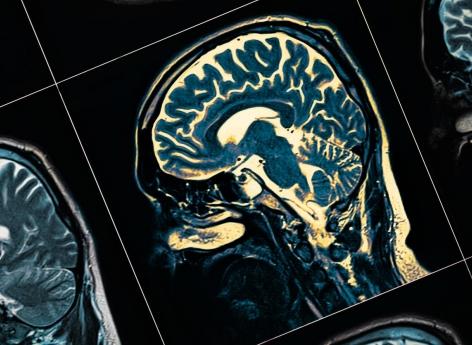Basic
- There are about 200,000 people with Parkinson’s disease in France, which is an ever-increasing number.
- Parkinson’s disease is a chronic neurological disease that develops differently from patient to patient.
Why Doctor – how were you diagnosed?
Michelle Oler – I visited my doctor because my husband noticed my right arm no longer wobbled when I walked. In addition, the difficulty of writing increases. Then my GP sent me to a neurologist, who, after a clinical examination, told me frankly that I had Parkinson’s disease. It was 2008, and I was 49 years old at the time.
What was your reaction after that?
I didn’t believe it at first, because for me, Parkinson’s disease only affects older adults, and basically it causes tremors that I haven’t had at all. After my diagnosis, I was in denial for several years.
What are your symptoms today?
Slowness, stiffness, and fatigue. I cannot stand for long because the steady position is causing me severe pain in my back. I also have speech problems as I cannot control my breathing. So I regularly see a physiotherapist and speech therapist, like many Parkinson’s patients. However, I still didn’t experience tremors.
Having Parkinson’s disease is a lifetime to review. We can no longer live as before.
Are you currently receiving treatment?
I got nervous in 2014, with electrodes in my head, which helped me with dyskinesia (involuntary movements of the extremities and torso) and sleep problems. It also allowed me to reduce the dosage of my basic treatments, as I was the most that could be given to me at the time.
Today I take 5 Stalevo daily with 3 more daily Parkinson’s tablets, plus an antidepressant and omeprazole. It is just too heavy to handle.
Why are you taking antidepressants?
Because even though I try to look good, sometimes I’m at the end of the line. It is difficult to live with the disease because we see ourselves gradually in decline. Once upon a time, we were no longer able to do very simple things, but we did them without problems the day before. Recently, for example, I have barely been able to make sauces with a paddle, because it has become more difficult to initiate a wrist movement.
Are you satisfied with your care?
Completely. In the first three years of illness I had a fragile, cold, and impersonal neurologist, and I couldn’t ask him my questions (we have a lot of them at first). Since I have changed, I have no longer had problems.
France Parkinson is very good and helps us a lot.
Does Parkinson’s disease affect your social relationships?
Yes, because when a person becomes ill, their entire family is affected. Me, I accepted to be upside down, but my kids and husband are still in denial.
They also don’t necessarily realize what he’s been through, and how difficult it is. For example, they think I’m not making an effort to speak up, even though I’m doing everything in my power to combat my speech problems due to illness.
Does the Covid-19 epidemic particularly affect you?
It is difficult for people with Parkinson’s disease to cope with an epidemic, as it reduces our social ties and our physical activities, which are essential to fighting disease progression. In this sense, the fact that sports are now being able to prescribe sports to patients who need them is very good.
How do you see your future?
I don’t really envision the future, it’s difficult for me. I live day in and day out, to make the most of it. I avoid showing myself, because a few years ago, I found myself encountering a man much older than me during a consultation. Parkinson’s disease made him suffer from incontinence, and he could only move with a stick … I saw myself like him, and that’s what scared me.
Do you think there are things that could be improved for people with Parkinson’s disease in France?
For people with Parkinson’s disease early on, I think there are things that could be improved in the world of work. In my case, I really liked my job, and it was very difficult to live with my dismissal. Since I could no longer stand for a long time, my employer told me overnight that he no longer needed me, without taking the hassle of adapting my condition, which was possible. I had the impression that he was discarding a load, and that he had become a victim of the plague.
In addition, neurologists see us in gusts of wind, generally no more than 20 minutes per consultation. They are also not adequately trained in Parkinson’s disease, even though it is a pathology in itself.
What is your advice for people with Parkinson’s disease?
You should not be ashamed of the disease, as is the case with much of Parkinson’s disease, and talk about it with those close to you. I help me a lot, and it helps me fight. You should also avoid isolating yourself, because Parkinson’s disease can quickly be cut off from the world. In terms of physical activity, I recommend investing in the support that works best for you. Finally, it is important to find caregivers with whom you feel good, and feel free to change if things do not go well.
Do you want to add anything?
The message I’m trying to deliver to patients and caregivers is that despite the announcement of the diagnosis, life goes on. Even if we have to adapt, it’s imperative to talk about it, get out, live and move on.

“Music guru. Incurable web practitioner. Thinker. Lifelong zombie junkie. Tv buff. Typical organizer. Evil beer scholar.”







More Stories
A large manufacturing project awaits space in the industrial zone
According to science, here are officially the two most beautiful first names in the world
Green space, 100% pedestrianized: DIX30 reinvents itself